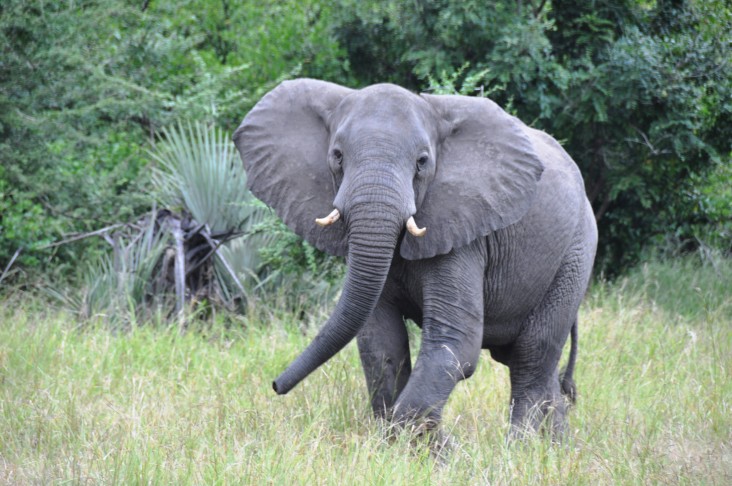
Dec. 2014—A new conservation law criminalizing wildlife poaching was enacted in Mozambique in June of this year. But while the passage of new laws receives much attention, the hard work of implementation often does not.
Wildlife trafficking is an international threat to conservation, economic development, the rule of law, and security. In addition to the well-documented illicit rhinoceros trade, organized crime syndicates kill more than 1,500 elephants a year in Mozambique. The ivory has been traced to markets from Maputo to Asia and, at current rates of loss and without significant intervention, elephants will become extinct in Mozambique over the next generation.
Previously, not everyone involved in the fight against poaching—from interdiction to prosecution and conviction—understood the full scale and scope of the challenge in Mozambique. By bringing high-level and public attention to the problem of poaching and wildlife trafficking, senior government leadership has fostered greater commitment and agreement on critical next steps.
To advance the implementation of this new law, Mozambique’s Attorney General’s Office, with U.S. Government support, hosted a two-day anti-poaching seminar in September 2014 that brought together magistrates, police commanders, prosecutors, district administrators and park wardens from the country’s most threatened protected areas, as well as leading conservation activists and media. More than 150 representatives from diverse government and civil society organizations analyzed the key challenges to prosecuting wildlife trafficking and how to combat associated organized crime.
“There are four to five elephants being killed every day in Mozambique. This means that 1,500 to 1,800 elephants are killed every year in our territory,” said seminar attendee Carlos Lopes Pereira of the Wildlife Conservation Society.
Although Mozambique’s parks and private game reserves remain resource strapped, recent successes, including a series of raids and arrests in Niassa National Reserve, highlight how the implementation of the new conservation law is leading to tangible results.
The Maputo seminar was co-funded by USAID and the U.S. Department of State’s Bureau of International Narcotics and Law Enforcement. Within USAID, the seminar demonstrated the synergies between democracy, governance and environment programming and how resources can be leveraged to achieve cross-sectoral development objectives.
USAID and Embassy staff will continue to help Mozambique with implementation of the new law through programming, resources and advocacy to ensure further progress, especially in the area of wildlife crime and poaching.
LINKS
Follow @USAIDMozambique, on Facebook, on Flickr, on YouTube







Comment
Make a general inquiry or suggest an improvement.